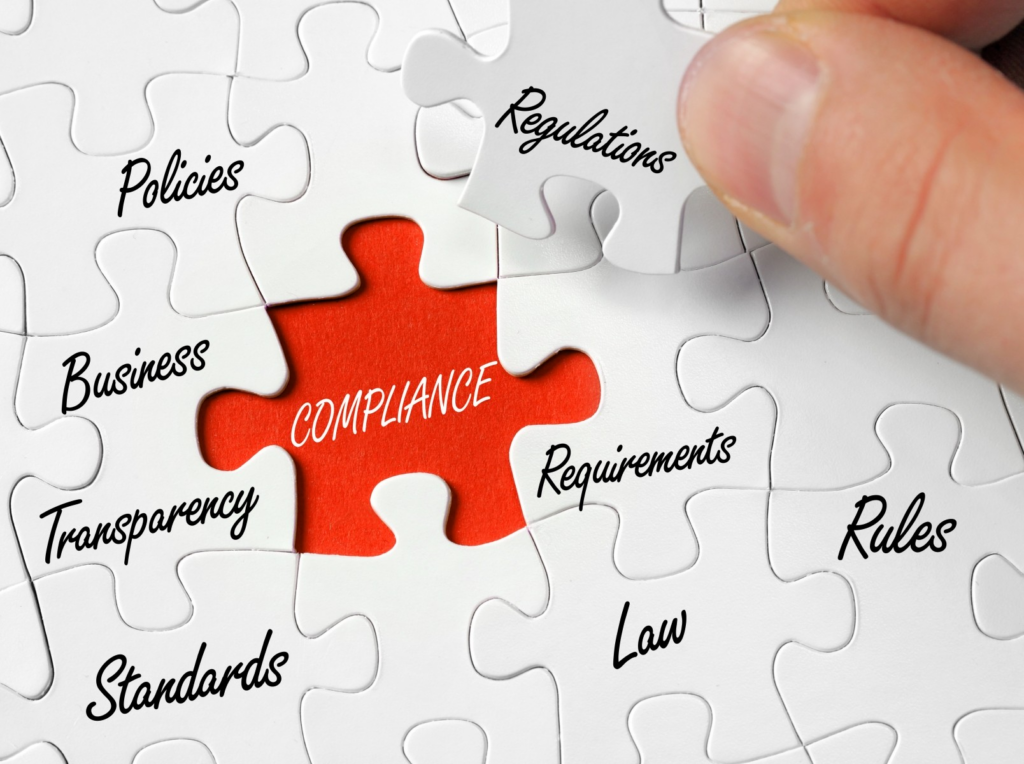As a business owner, I understand the importance of complying with policies and regulations. Navigating through the complex landscape of policy and regulation can be challenging, but it is crucial for the success and sustainability of your business. In this comprehensive guide, I will provide you with valuable insights, tips, and best practices to help you navigate policy and regulation effectively.
Understanding Policy and Regulation
Policy and regulation are essential frameworks that govern the conduct and operations of businesses. Policies are guidelines set by organizations or governments to ensure certain standards are met, while regulations are legally binding rules that businesses must comply with. These frameworks are designed to protect consumers, promote fair competition, and maintain social and environmental standards.
Understanding the intricacies of policy and regulation is the first step towards compliance. It is crucial to be aware of the specific policies and regulations that apply to your industry and region. Conduct thorough research, consult legal experts, and stay updated with the latest developments to ensure compliance with the relevant laws.
The Importance of Compliance in Business
Compliance with policy and regulation is not just a legal obligation; it is also a strategic advantage for businesses. By adhering to policies and regulations, you build trust with your customers, investors, and stakeholders. Compliance demonstrates your commitment to ethical practices, which can enhance your brand reputation and attract more customers.
Non-compliance, on the other hand, can result in severe consequences such as fines, legal disputes, and damage to your reputation. It is essential to prioritize compliance in your business operations and allocate resources to ensure adherence to policies and regulations.

Types of Policies and Regulations Affecting Businesses
Policies and regulations can vary widely depending on the industry and region. It is crucial to identify the specific policies and regulations that apply to your business. Here are some common types of policies and regulations that may affect your business:
- Health and Safety Regulations: These regulations ensure the safety and well-being of employees and customers. They cover aspects such as workplace hazards, emergency procedures, and hygiene standards.
- Environmental Regulations: These policies aim to protect the environment by regulating activities that may harm natural resources, ecosystems, or contribute to pollution. They cover areas such as waste management, emissions control, and sustainable practices.
- Data Privacy and Security Regulations: In the era of digitalization, protecting customer data is of utmost importance. These regulations govern how businesses collect, store, and use personal information, ensuring privacy and security.
- Labor Laws: Labor laws cover aspects such as minimum wage, working hours, employee benefits, and anti-discrimination practices. Compliance with labor laws is critical for maintaining a fair and inclusive workplace.
Understanding the specific policies and regulations that apply to your business is essential for compliance. Consult legal experts or industry associations to identify the relevant policies and regulations and develop a strategy to ensure compliance.
Navigating Policy and Regulation – Tips and Best Practices
Navigating through the complex landscape of policy and regulation requires a strategic approach. Here are some tips and best practices to help you navigate policy and regulation effectively:
- Stay Informed and Updated: Policy and regulation are constantly evolving. Stay informed about the latest developments by subscribing to industry newsletters, attending conferences, and joining relevant industry associations. Regularly review and update your compliance strategy to ensure it aligns with the latest policies and regulations.
- Seek Legal Advice: Consult legal experts specializing in policy and regulation to ensure you fully understand the implications and requirements. They can provide valuable guidance on compliance and help you navigate any legal complexities that may arise.
- Establish a Compliance Culture: Foster a culture of compliance within your organization. Educate your employees about the importance of policy and regulation and provide training to ensure they understand their roles and responsibilities. Encourage open communication and reporting of any compliance concerns or violations.
- Maintain Accurate Records: Keep detailed records of your compliance efforts, including policies, procedures, training materials, and audit reports. Accurate record-keeping demonstrates your commitment to compliance and can provide evidence of your efforts in case of any audits or legal disputes.
By following these tips and best practices, you can navigate policy and regulation more effectively and ensure compliance within your business.

The Role of Government Agencies in Policy and Regulation
Government agencies play a crucial role in the development and enforcement of policies and regulations. They are responsible for creating and implementing frameworks that protect public interests, ensure fair competition, and maintain social and environmental standards. Government agencies also monitor compliance and take enforcement actions against businesses that violate policies and regulations.
It is important to establish a positive relationship with government agencies and proactively engage with them. Stay updated with the agencies relevant to your industry and region, and seek their guidance when necessary. Participate in public consultations and provide feedback on proposed policies and regulations to influence decision-making processes.
Collaborating with government agencies can help you stay ahead of policy and regulation changes, understand their implications on your business, and ensure compliance.
Developing a Comprehensive Policy and Regulation Strategy
Developing a comprehensive policy and regulation strategy is essential for effective compliance. Here are some steps to develop an effective strategy:
- Identify Applicable Policies and Regulations: Conduct a thorough analysis to identify the specific policies and regulations that apply to your business. Consider industry-specific regulations, regional laws, and international standards.
- Assess Risks and Implications: Evaluate the potential risks and implications of non-compliance. Consider the legal, financial, and reputational consequences of violating policies and regulations. This assessment will help you prioritize compliance efforts and allocate resources effectively.
- Establish Internal Policies and Procedures: Develop internal policies and procedures that align with the applicable policies and regulations. Clearly communicate these policies to your employees and ensure they have the necessary resources and training to comply.
- Monitor Compliance and Conduct Audits: Regularly monitor compliance with policies and regulations. Conduct internal audits to identify any gaps or areas for improvement. Address any non-compliance issues promptly and take corrective actions.
By following these steps, you can develop a comprehensive policy and regulation strategy that ensures compliance and minimizes risks for your business.
Implementing and Managing Policy and Regulation in Your Business
Implementing and managing policy and regulation in your business requires careful planning and continuous effort. Here are some tips to help you effectively implement and manage compliance:
- Assign Responsibility: Clearly define roles and responsibilities for compliance within your organization. Designate a compliance officer or team responsible for overseeing compliance efforts, monitoring policy changes, and ensuring adherence to regulations.
- Integrate Compliance into Business Processes: Integrate compliance into your day-to-day business operations. Embed compliance requirements into your processes, from procurement to product development, marketing to customer service. This integration ensures that compliance becomes a seamless part of your business activities.
- Provide Training and Awareness Programs: Educate your employees about the policies and regulations that apply to their roles. Provide regular training and awareness programs to ensure they understand their compliance obligations. Foster a culture of compliance by encouraging open communication and reporting of any compliance concerns.
- Regularly Review and Update Policies: Policies and regulations are dynamic. Regularly review and update your policies to ensure they align with the latest requirements. Communicate any changes to your employees and provide the necessary training to ensure compliance.
By implementing these tips, you can effectively manage policy and regulation in your business and ensure ongoing compliance.
Case Studies on Successful Policy and Regulation Practices
Case studies provide valuable insights into successful policy and regulation practices. Here are a few examples:
- Company X: Environmental Compliance: Company X, a manufacturing company, implemented a comprehensive environmental compliance program. They conducted regular audits, upgraded their equipment to meet emission standards, and implemented waste management practices. As a result, they not only complied with environmental regulations but also reduced their environmental footprint, attracting environmentally conscious customers.
- Company Y: Data Privacy Compliance: Company Y, an e-commerce platform, prioritized data privacy compliance. They implemented stringent security measures, obtained customer consent for data collection, and regularly updated their privacy policy. This commitment to data privacy enhanced customer trust and loyalty, resulting in increased sales and customer retention.
These case studies highlight the benefits of proactive compliance and provide valuable insights into how businesses can navigate policy and regulation successfully.
Resources and Tools for Staying Up-to-Date with Policy and Regulation Changes
Staying up-to-date with policy and regulation changes is crucial for effective compliance. Here are some resources and tools to help you stay informed:
- Government Websites: Government websites provide access to policies, regulations, and updates. Visit the relevant government websites to access official information and resources related to your industry and region.
- Industry Associations: Join industry associations or professional networks relevant to your business. These associations often provide newsletters, webinars, and conferences that focus on policy and regulation updates.
- Legal Experts and Consultants: Consult legal experts and consultants specializing in policy and regulation. They can provide valuable insights, guidance, and updates on the latest developments in your industry.
- Online Newsletters and Publications: Subscribe to online newsletters and publications that focus on policy and regulation. These sources often provide timely updates, analysis, and expert opinions on the latest policy and regulation changes.
By utilizing these resources and tools, you can stay informed about policy and regulation changes, assess their implications on your business, and ensure ongoing compliance.



